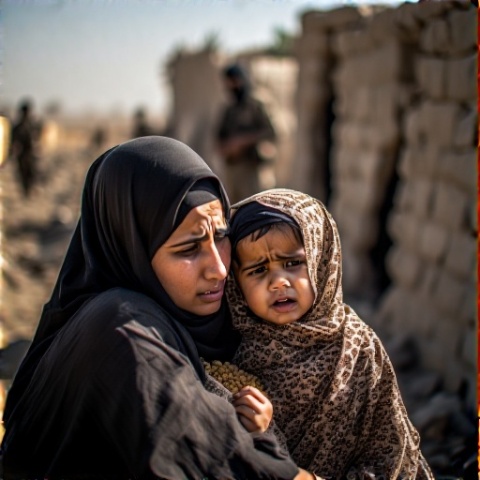In a fast-changing world, Islamic education provides young Muslims with a strong foundation to navigate life with faith, purpose, and integrity. Rooted in the Holy Quran and the Sunnah of Prophet Muhammad (PBUH), it equips them with spiritual, moral, and intellectual tools to thrive. Lets explore six key reasons why Islamic education is essential for Muslim youth, supported by Quranic verses and authentic Hadith. Designed for Muslims and those curious about Islamic values, it offers clear insights for non-native English speakers, inspiring parents and educators to prioritize Islamic learning for the next generation.
Understanding Islamic Education
What Is Islamic Education?
Islamic education integrates religious and worldly knowledge, teaching the Quran, Hadith, Fiqh (Islamic law), and ethical values alongside subjects like math and science. It aims to nurture a balanced Muslim who loves Allah and serves humanity. The Quran emphasizes learning:
“Say: ‘My Lord, increase me in knowledge.’”
Surah Taha, Ayah 114
فَتَعَـٰلَى ٱللَّهُ ٱلۡمَلِكُ ٱلۡحَقُّۗ وَلَا تَعۡجَلۡ بِٱلۡقُرۡءَانِ مِن قَبۡلِ أَن یُقۡضَىٰۤ إِلَیۡكَ وَحۡیُهُۥۖ وَقُل رَّبِّ زِدۡنِی عِلۡمࣰا
So high [above all] is Allah, the Sovereign, the Truth. And, [O Muhammad], do not hasten with [recitation of] the Qur’an before its revelation is completed to you, and say, “My Lord, increase me in knowledge.”
[20:114]
This verse reflects the divine call to seek knowledge, a cornerstone of Islamic education.
Why It Matters for Youth
The Prophet (PBUH) said, “Seeking knowledge is obligatory upon every Muslim” (Sunan Ibn Majah, Hadith 224). For young Muslims, this education fosters faith and resilience in modern challenges.
Reason 1: Strengthening Faith (Iman)
Building a Connection with Allah
Islamic education teaches young Muslims about tawheed (oneness of Allah) and worship, deepening their faith. The Quran says:
“This is the Book about which there is no doubt, a guidance for those conscious of Allah.”
Surah Al-Baqarah, Ayah 2
ذَ ٰلِكَ ٱلۡكِتَـٰبُ لَا رَیۡبَۛ فِیهِۛ هُدࣰى لِّلۡمُتَّقِینَ
This is the Book about which there is no doubt, a guidance for those conscious of Allah –
[2:2]
This verse highlights the Quran’s role as a guide, which education helps youth understand.
Example
A teenager learning Surah Al-Fatiha in class gains a stronger connection to Salah, reinforcing their Iman.
Reason 2: Instilling Moral Values
Shaping Ethical Character
Islamic education emphasizes honesty, kindness, and respect, drawn from the Prophet’s example. The Prophet (PBUH) said, “The best among you are those who have the best manners and character” (Sahih Bukhari, Hadith 3559).
Real-Life Impact
A child taught to be truthful, inspired by the story of Abu Bakr As-Siddiq (RA), might resist peer pressure to lie, building a strong moral compass.
Reason 3: Protecting Against Negative Influences
A Shield in Modern Times
Islamic education equips youth to resist harmful cultural trends, like materialism or unethical behavior. The Quran warns:
Surah At-Tahrim, Ayah 6
یَـٰۤأَیُّهَا ٱلَّذِینَ ءَامَنُوا۟ قُوۤا۟ أَنفُسَكُمۡ وَأَهۡلِیكُمۡ نَارࣰا وَقُودُهَا ٱلنَّاسُ وَٱلۡحِجَارَةُ عَلَیۡهَا مَلَـٰۤىِٕكَةٌ غِلَاظࣱ شِدَادࣱ لَّا یَعۡصُونَ ٱللَّهَ مَاۤ أَمَرَهُمۡ وَیَفۡعَلُونَ مَا یُؤۡمَرُونَ
O you who have believed, protect yourselves and your families from a Fire whose fuel is people and stones, over which are [appointed] angels, harsh and severe; they do not disobey Allah in what He commands them but do what they are commanded.
[66:6]
This verse urges safeguarding youth through faith-based education.
Example
A young Muslim learning about modesty might choose hijab or avoid inappropriate media, staying true to Islamic values.
Reason 4: Fostering a Sense of Identity
Embracing Muslim Identity
Islamic education helps young Muslims feel proud of their faith, especially in non-Muslim societies. The Prophet (PBUH) said, “Whoever imitates a people is one of them” (Sunan Abi Dawud, Hadith 4031), encouraging a distinct Islamic identity.
Practical Example
A student in a Western school, learning about the Sahaba (RA), feels confident explaining Ramadan to classmates, strengthening their Muslim identity.
Reason 5: Preparing for Community Leadership
Building Future Leaders
Islamic education trains youth to serve their communities with knowledge and compassion. The Quran encourages leadership:
Surah Al-Anbiya, Ayah 73
وَجَعَلۡنَـٰهُمۡ أَىِٕمَّةࣰ یَهۡدُونَ بِأَمۡرِنَا وَأَوۡحَیۡنَاۤ إِلَیۡهِمۡ فِعۡلَ ٱلۡخَیۡرَ ٰتِ وَإِقَامَ ٱلصَّلَوٰةِ وَإِیتَاۤءَ ٱلزَّكَوٰةِۖ وَكَانُوا۟ لَنَا عَـٰبِدِینَ
And We made them leaders guiding by Our command. And We inspired to them the doing of good deeds, establishment of prayer, and giving of zakah; and they were worshippers of Us.
[21:73]
This verse highlights the role of guided leaders, nurtured through education.
Example
A teen volunteering at a mosque, inspired by lessons on Umar ibn Al-Khattab’s (RA) justice, develops leadership skills.
Reason 6: Encouraging Lifelong Learning
A Love for Knowledge
Islamic education instills a passion for learning, aligning with Islam’s intellectual tradition. The Prophet (PBUH) said, “Whoever follows a path to seek knowledge, Allah will make easy for him a path to Paradise” (Sahih Muslim, Hadith 2699).
Historical Example
Scholars like Ibn Sina (RH), educated in Islamic institutions, advanced science, showing how Islamic education fosters curiosity. Today, a child might explore both Quran and astronomy with enthusiasm.
Addressing Common Misconceptions
Misconception 1: Islamic Education Is Only Religious
Islamic education balances religious and secular subjects, preparing youth for modern careers while grounding them in faith, as seen in the Golden Age of Islam.
Misconception 2: It’s Irrelevant in Modern Times
Islamic education remains vital, offering timeless values like justice and compassion, relevant in any era (Surah Al-Baqarah, Ayah 2).
Challenge: Limited Access
Some families lack Islamic schools. Solution: Use online platforms like Al-Madrasa or free resources from Quran.com to teach at home.
Practical Steps for Parents and Educators
- Enroll in Islamic Classes: Join local or online Islamic schools.
- Read Quran Together: Study short Surahs with kids daily.
- Share Hadith: Discuss one Hadith weekly to teach values.
- Visit Mosques: Attend youth programs for community learning.
- Use Technology: Apps that offer fun Islamic content.
Conclusion: A Foundation for Faithful Lives
Islamic education is essential for young Muslims, strengthening their faith, morals, identity, and leadership while protecting them from negative influences and fostering lifelong learning. Grounded in the Quran and Hadith, it prepares youth to live as confident, compassionate Muslims. By prioritizing Islamic education, parents and educators ensure the next generation carries forward Islam’s values. Let this guide inspire you to invest in Islamic learning for young Muslims in 2025 and beyond.







